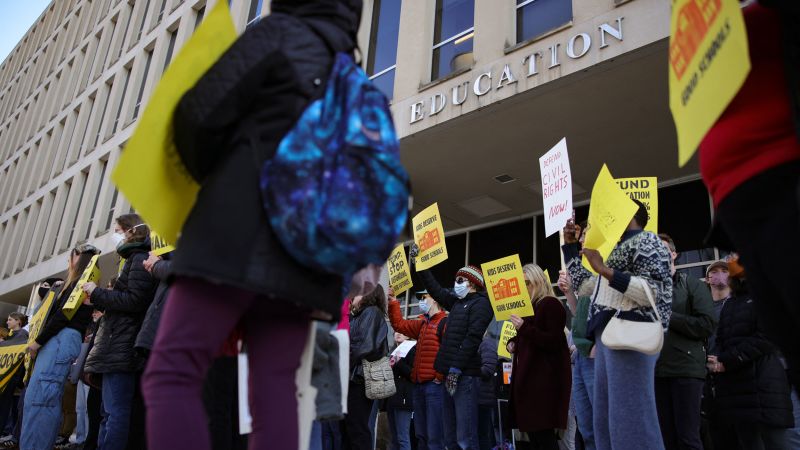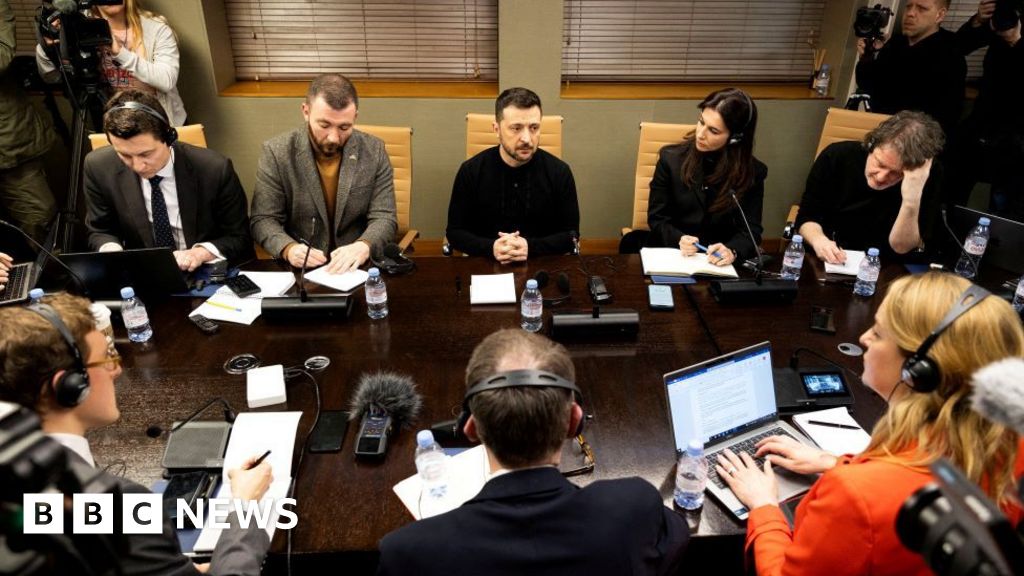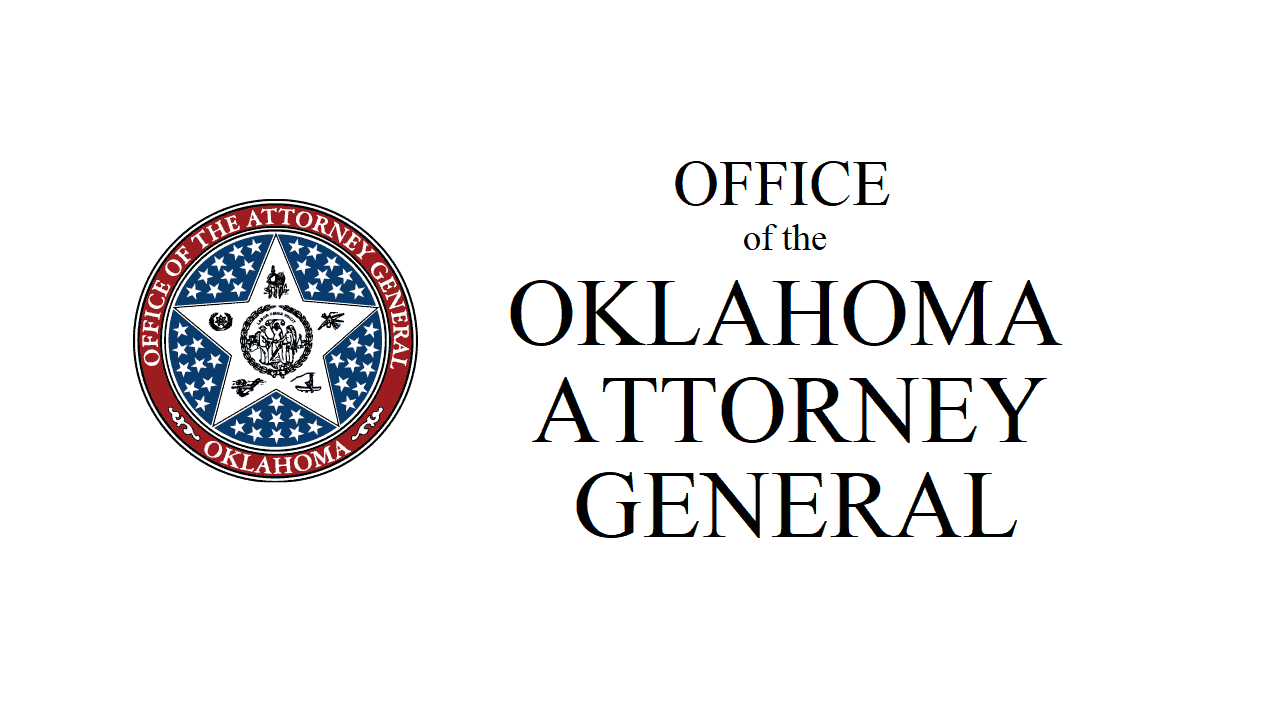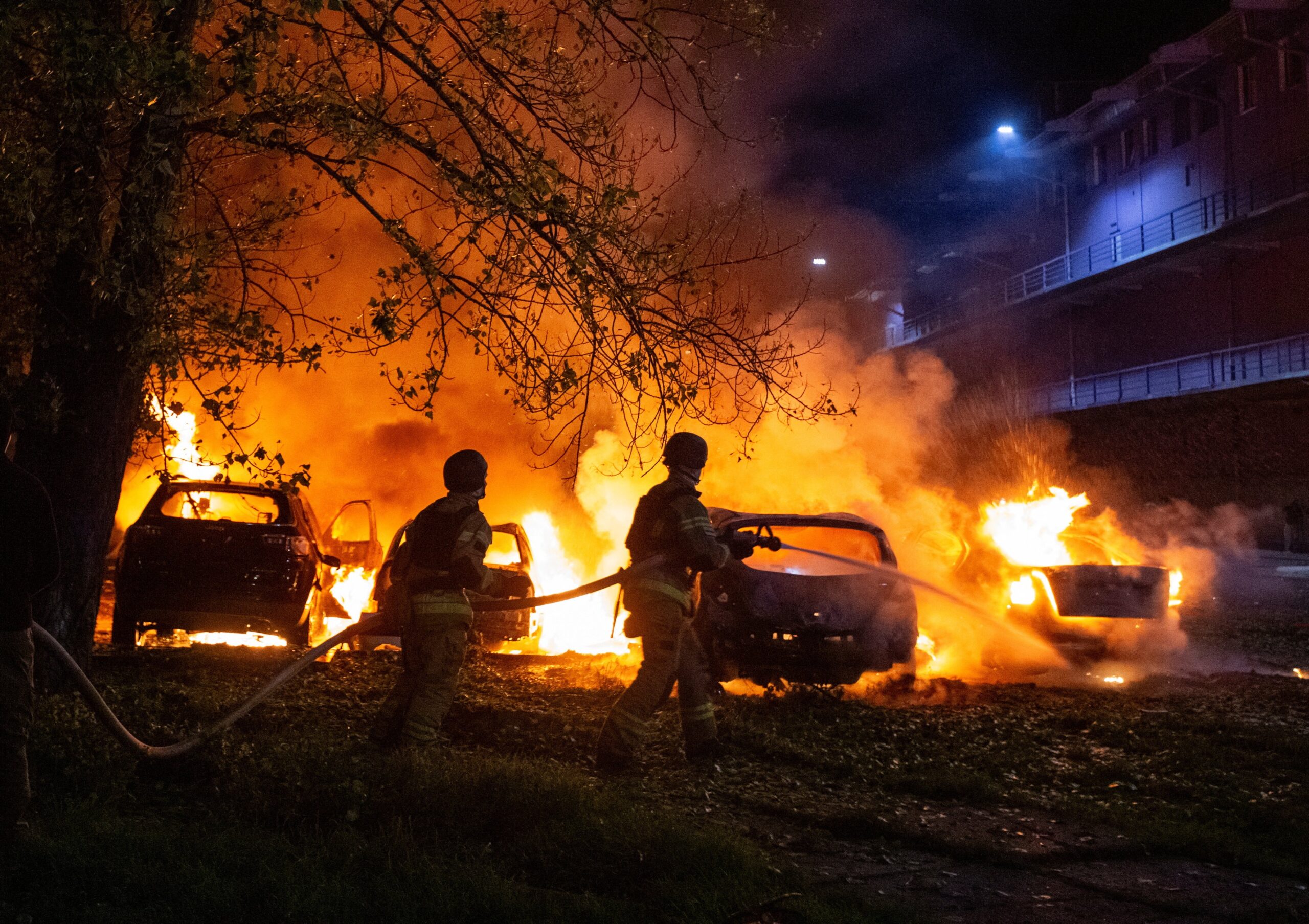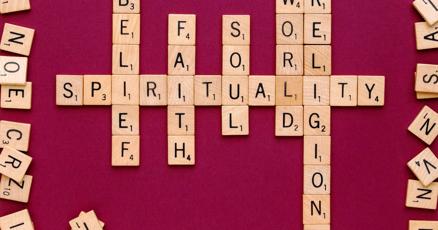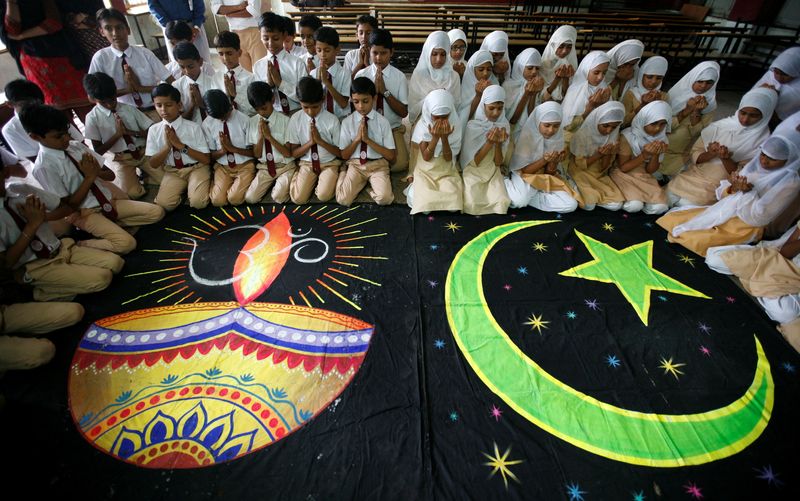Religious Education Debate Heats Up: OKCPS Board Wrestles with Off-Campus Moral Classes
Religion
2025-04-07 20:01:53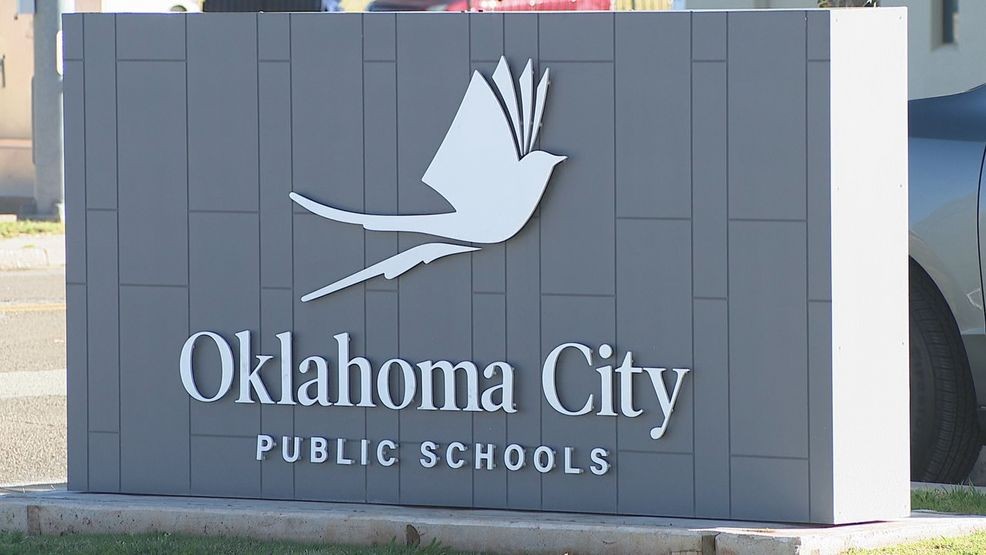
Oklahoma City Public Schools is moving forward with a groundbreaking initiative that could soon allow students to explore religious and moral studies through an innovative off-campus elective program. The school district's board members have recently unveiled preliminary guidelines that promise to offer students a unique educational opportunity beyond traditional classroom learning. Under the proposed plan, students would have the option to participate in religious or moral education classes that take place outside of school premises, providing a flexible approach to understanding diverse belief systems and ethical frameworks. This forward-thinking proposal aims to broaden students' perspectives while respecting academic standards and constitutional guidelines. Board members emphasized that the program is designed to be voluntary and will provide students with an enriching educational experience that encourages critical thinking and cultural understanding. By offering these off-campus electives, the district hopes to support students' intellectual and personal growth while maintaining a neutral, educational approach to complex philosophical and spiritual topics. The proposed guidelines are currently under review and will require careful implementation to ensure they meet legal and educational standards. School officials are committed to creating a program that promotes learning, respect, and open dialogue among students from various backgrounds. As the initiative moves closer to potential approval, educators and community members are watching with keen interest, recognizing the potential for this innovative approach to expand students' horizons and promote deeper understanding of different worldviews. MORE...
Silenced Scholarship: How My Book on Christian Racism Became Collateral in Pentagon's Cultural Purge
Religion
2025-04-07 19:58:35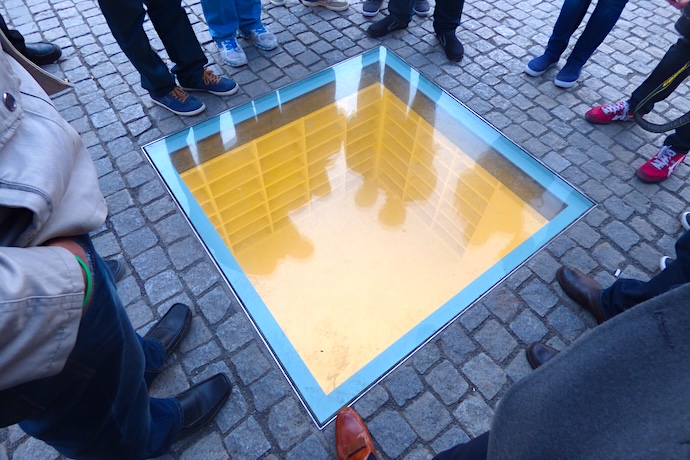
On Friday, I was caught off guard by a flurry of messages revealing an unexpected development. My critically acclaimed book, "White Too Long: The Legacy of White Supremacy in American Christianity" - which had previously been honored with a 2021 American Book Award - had suddenly found itself on a controversial list. Specifically, the book was ranked #46 among 381 titles that Secretary of Defense Pete Hegseth had targeted for removal from academic library shelves. The unexpected inclusion sparked immediate curiosity and concern about the motivations behind such a sweeping literary censorship effort. As an author who has dedicated significant research to exploring the complex intersections of race, religion, and systemic inequality, this development felt particularly significant. MORE...
Religious Charter School Showdown: AG Campbell Challenges Supreme Court Funding Mandate
Religion
2025-04-07 19:02:03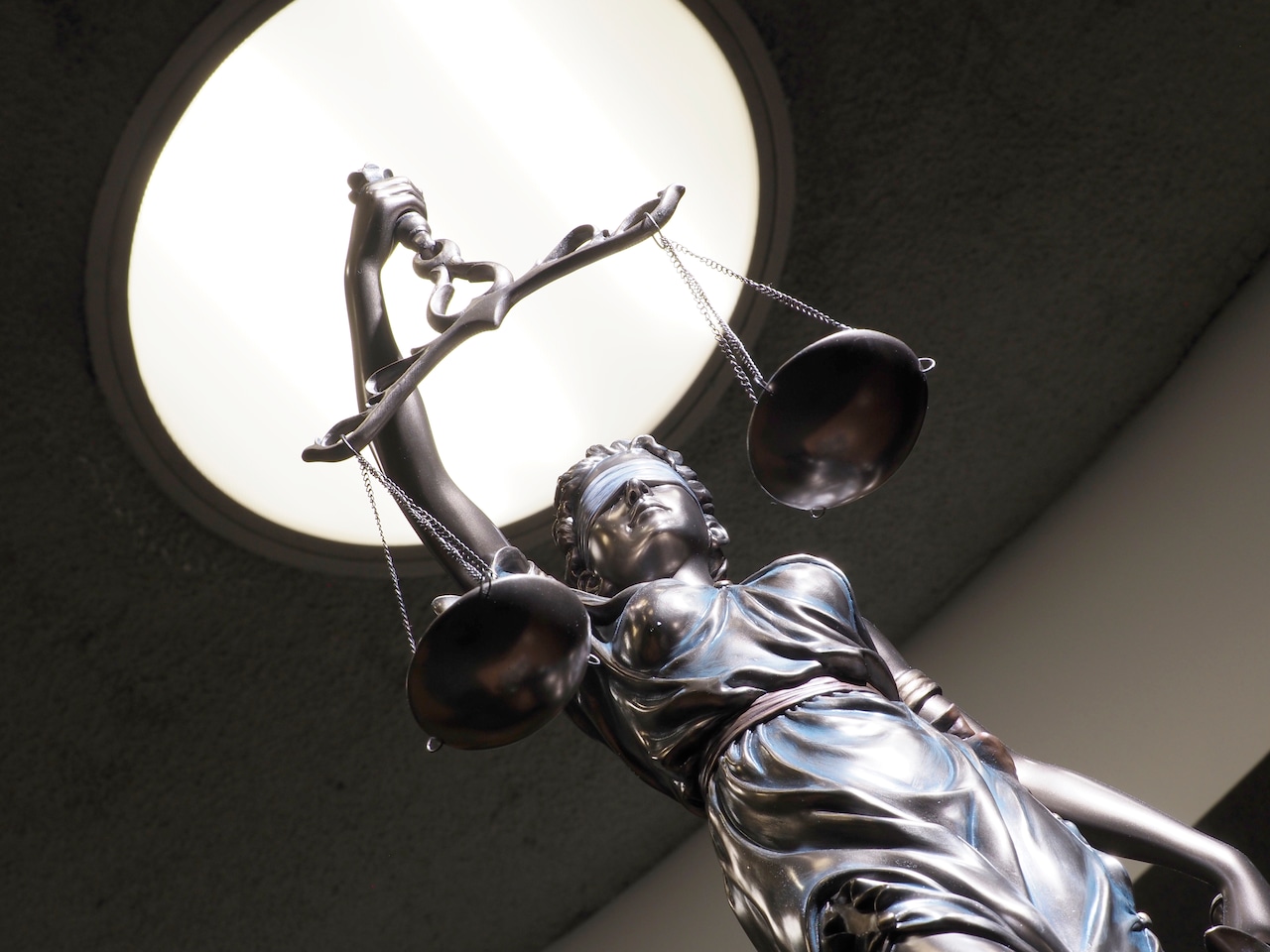
In a powerful defense of constitutional principles, Massachusetts Attorney General Andrea J. Campbell emphasized that the First Amendment unequivocally stands against the use of public funds to support religious educational institutions. Her statement underscores the critical constitutional barrier that prevents taxpayer money from directly financing schools with religious affiliations, highlighting the fundamental separation of church and state enshrined in the U.S. Constitution. Campbell's remarks reinforce the longstanding legal interpretation that protects both religious freedom and the integrity of public funding, ensuring that government resources remain neutral in matters of religious education. This principle has been a cornerstone of American constitutional law, preventing direct financial support for schools that are explicitly tied to religious organizations. MORE...
Clash of Conscience: Governor Blocks Controversial Child Welfare Legislation
Religion
2025-04-07 18:39:17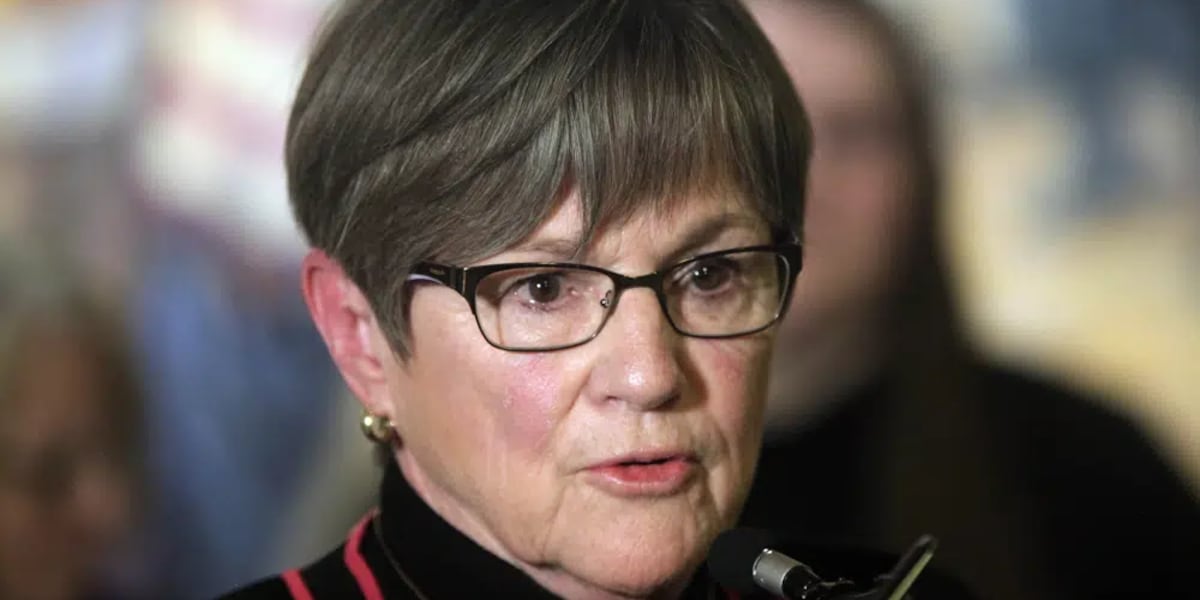
In a bold move that has sparked intense debate, Kansas Governor Laura Kelly has vetoed a controversial bill that intersects religious beliefs and children's welfare. The legislation, which had significant implications for faith-based child welfare practices, was blocked by the governor in a decision that highlights the delicate balance between religious freedom and child protection. The bill, which had passed through the state legislature, sought to address complex issues surrounding religious exemptions and child welfare services. Governor Kelly's veto signals her commitment to carefully examining the potential impacts of such legislation on vulnerable children and families. By rejecting the proposed law, Kelly has reignited a nuanced conversation about the boundaries of religious expression and the paramount importance of safeguarding children's well-being. The veto underscores the challenging terrain of balancing constitutional rights with child protection standards. Political observers and child welfare advocates are closely watching the fallout from this decision, which is likely to generate significant discussion about the intersection of religious liberty and state responsibilities toward children. MORE...
Sacred Peaks and Spotted Guardians: How Faith and Culture Shield the Elusive Snow Leopard
Religion
2025-04-07 18:33:41
In the predawn darkness of a chilly November morning, the tranquil mountain village of Dhakmar in Nepal's Mustang district was shattered by an unexpected and devastating encounter. At 4 a.m., four snow leopards silently infiltrated Mingmar Gurung's livestock corral, transforming a peaceful night into a scene of shocking destruction. The first hint of trouble came from the terrified bleating of goats, piercing the early morning silence. Startled awake, Mingmar rushed toward the corral, his heart racing with a mixture of fear and dread. What he discovered was a nightmare beyond imagination: of his 190 carefully tended goats, 77 had been killed by the snow leopards. This brutal incident highlights the complex and often tragic interactions between wildlife and local communities in the remote Himalayan regions, where survival for both humans and animals is a delicate balance. For Mingmar and his fellow villagers, the loss represents not just economic devastation, but a profound disruption of their fragile mountain ecosystem. MORE...
Texas Legislature Heats Up: Fiery Debates Spark Controversial Bills on Wildfires, Taxes, and Social Issues
Religion
2025-04-07 18:13:31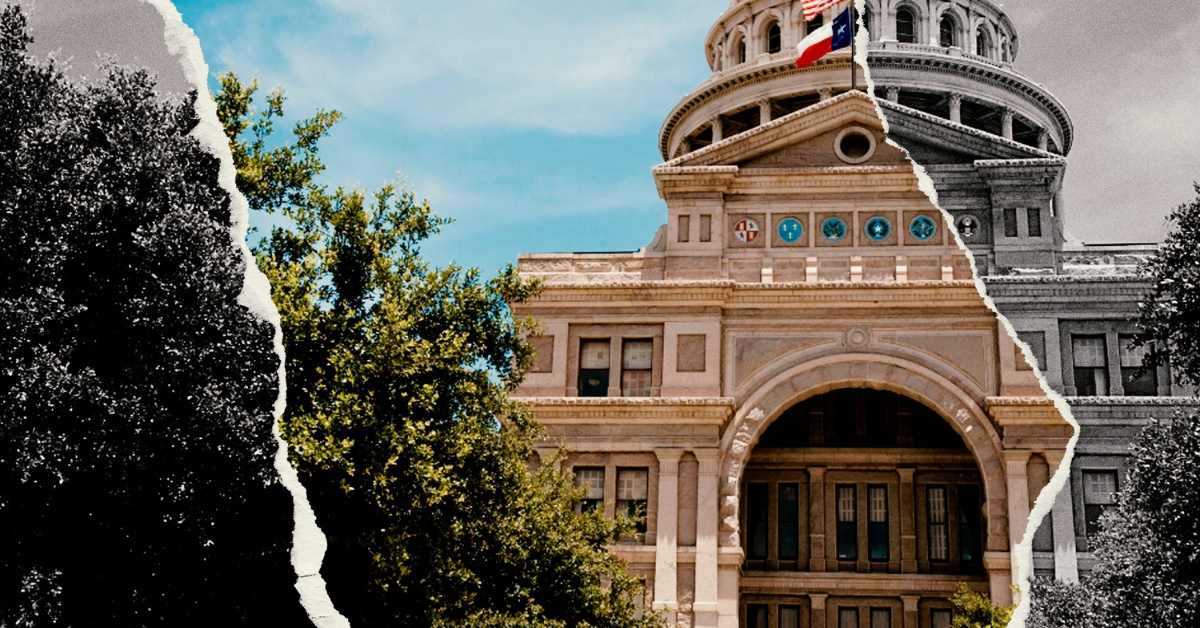
As the Texas Legislature kicks into high gear for the 2025 legislative session, lawmakers are making significant strides on a range of critical issues that promise to reshape the state's social and regulatory landscape. The current session is marked by intense debates and proposed legislation targeting key areas of public concern, including emergency preparedness, financial oversight, religious expression in educational settings, and transgender rights. Legislators are demonstrating a proactive approach to addressing complex policy challenges, with several high-profile bills gaining traction and sparking passionate discussions across the state. These proposed measures reflect the ongoing efforts to balance diverse perspectives and address emerging social and regulatory needs in Texas. The proposed legislation spans multiple domains, signaling a comprehensive attempt to respond to evolving societal dynamics and address pressing concerns that resonate with Texan constituents. From enhancing emergency response capabilities to refining financial regulations and exploring nuanced questions of personal rights and freedoms, the 2025 legislative session promises to be a pivotal moment in the state's ongoing policy development. MORE...
Faith vs. Bureaucracy: Congo's Religious ID Showdown Erupts
Religion
2025-04-07 10:25:10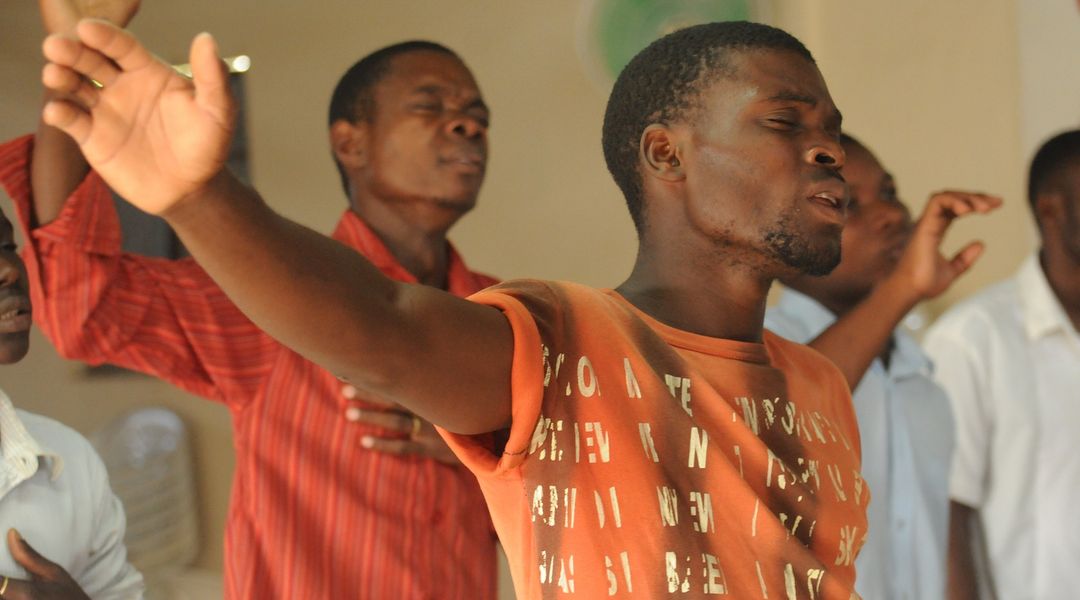
In a bold move that's sparking intense debate, Central Africa is set to implement a controversial new law governing religious practices. The sweeping legislation promises to regulate faith groups and eliminate religious imposters, but it's raising serious concerns among religious leaders who fear the law could fundamentally undermine religious freedom in this deeply spiritual nation. The proposed worship permit law represents a dramatic attempt to bring structure and accountability to the country's diverse religious landscape. While government officials argue the measure will protect citizens from fraudulent religious operators, religious leaders are sounding alarm bells about potential government overreach. At the heart of the controversy is the delicate balance between regulation and religious liberty. Proponents of the law claim it will safeguard vulnerable communities from predatory religious groups, while critics see it as a dangerous precedent that could suppress genuine religious expression. This development comes at a critical moment for a nation known for its profound religious devotion. The law's implementation could reshape the relationship between faith, community, and state governance, potentially transforming the religious ecosystem that has long been a cornerstone of Central African social life. As tensions mount and discussions intensify, the world watches closely to see how this unprecedented legislation will unfold and what implications it might have for religious freedom in the region. MORE...
Behind the Papal Ballots: The Hidden Religious Dynamics of Conclave Electors
Religion
2025-04-07 09:27:43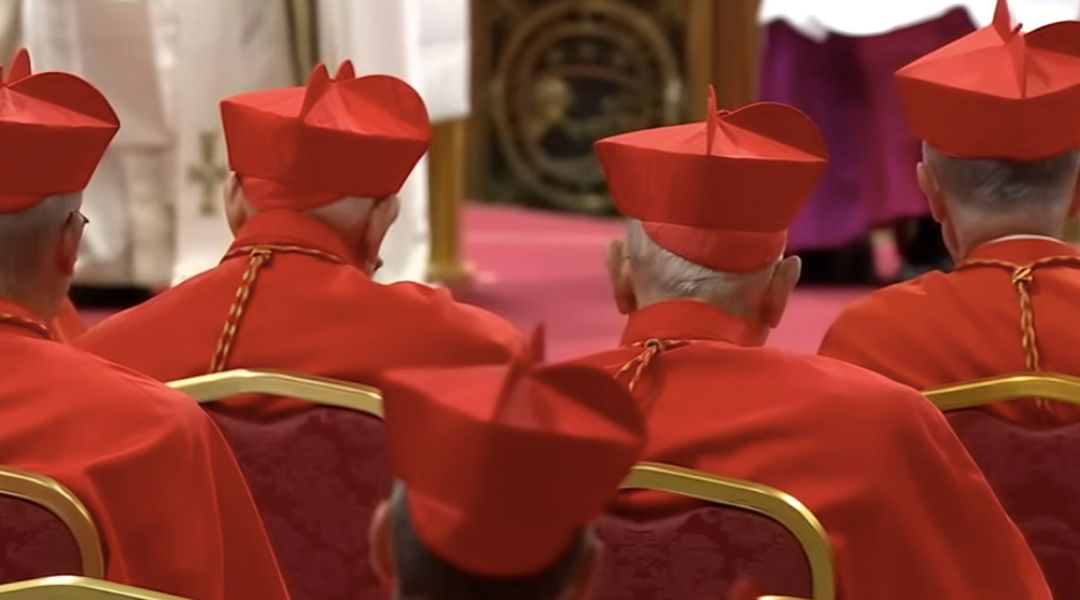
In a significant milestone for the Catholic Church, Chilean Cardinal Celestino Aós Braco recently celebrated his 80th birthday on April 6, which automatically removes him from the pool of potential papal electors. This transition highlights an intriguing aspect of Vatican tradition: among the college of cardinal electors, only 34 are members of religious orders—a remarkably select group that has historically produced just 20 popes throughout the Church's extensive 2,000-year history. Cardinal Aós Braco's departure from the electoral college underscores the carefully structured succession process within the Catholic Church, where age serves as a natural mechanism for renewing leadership and ensuring a dynamic, evolving governance. His milestone birthday symbolizes both an individual's lifetime of service and the broader institutional mechanisms that maintain the Church's continuity and adaptability. The rarity of religious order members ascending to the papal throne—with only 20 out of 266 historical popes coming from such backgrounds—adds an intriguing layer of historical perspective to this ecclesiastical transition. MORE...
Controversial Choice: Colombia Taps Outspoken Anti-Zionist 'Rabbi' for Religious Leadership
Religion
2025-04-07 07:23:38
In a dramatic turn of events following Colombia's diplomatic break with Israel, the recent appointment of Richard Gamboa Ben-Eleazar as director of religious affairs at the Ministry of the Interior has ignited a firestorm of controversy that extends far beyond national borders. The unexpected selection has drawn intense scrutiny and raised eyebrows among political observers, religious leaders, and international diplomats alike. Gamboa Ben-Eleazar's appointment comes at a particularly sensitive moment in Colombia's diplomatic landscape, where tensions are already heightened by the country's recent decision to sever ties with Israel. The choice of a director with such a complex background has only served to amplify the already charged political atmosphere, prompting widespread debate about the implications of this high-profile governmental selection. The controversy surrounding the appointment highlights the intricate intersections of diplomacy, religious affairs, and national identity in contemporary Colombian politics, ensuring that this decision will continue to generate significant discussion and analysis in the weeks and months to come. MORE...
When Faith Becomes a Crime: Exposing Religious Persecution and Human Rights Violations
Religion
2025-04-07 04:32:03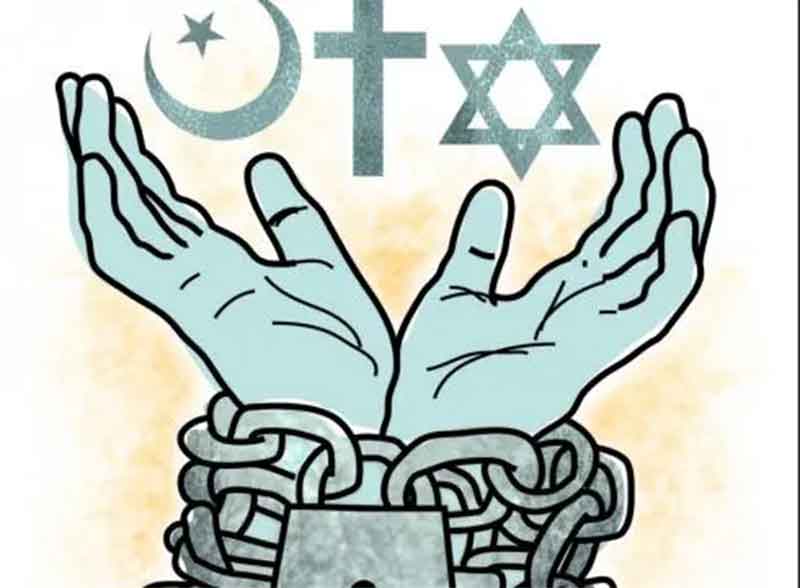
India's Ongoing Struggle with Religious Freedom: A Complex Narrative Religious tensions and government crackdowns on freedom of religion have long been a challenging aspect of India's complex social landscape. The passage of the Citizenship Amendment Act in 2020 brought these simmering tensions to a boiling point, sparking widespread protests and unprecedented social unrest across the country. The recent legislative actions and subsequent reactions highlight a deep-rooted pattern of religious and political friction that has characterized India's social dynamics for decades. Protesters took to the streets, expressing their concerns about what they perceived as discriminatory policies that threatened the secular fabric of the world's largest democracy. The violence that erupted in the wake of these protests underscored the deep divisions and sensitivities surrounding religious identity and citizenship rights. Each incident serves as a stark reminder of the ongoing challenges India faces in balancing religious diversity, political interests, and constitutional principles of equality. While the situation remains complex, it continues to draw international attention to the delicate interplay of religion, politics, and civil liberties in modern India. MORE...
- 1
- 2
- 3
- 4
- 5
- 6
- 7
- 8
- 9
- 10
- 11
- 12
- 13
- 14
- 15
- 16
- 17
- 18
- 19
- 20
- 21
- 22
- 23
- 24
- 25
- 26
- 27
- 28
- 29
- 30
- 31
- 32
- 33
- 34
- 35
- 36
- 37
- 38
- 39
- 40
- 41
- 42
- 43
- 44
- 45
- 46
- 47
- 48
- 49
- 50
- 51
- 52
- 53
- 54
- 55
- 56
- 57
- 58
- 59
- 60
- 61
- 62
- 63
- 64
- 65
- 66
- 67
- 68
- 69
- 70
- 71
- 72
- 73
- 74
- 75
- 76
- 77
- 78
- 79
- 80
- 81
- 82
- 83
- 84
- 85
- 86
- 87
- 88
- 89
- 90
- 91
- 92
- 93
- 94
- 95
- 96
- 97
- 98
- 99
- 100
- 101
- 102
- 103
- 104
- 105
- 106
- 107
- 108
- 109
- 110
- 111
- 112
- 113
- 114
- 115
- 116
- 117
- 118
- 119
- 120
- 121
- 122
- 123
- 124
- 125
- 126
- 127
- 128
- 129
- 130
- 131
- 132
- 133
- 134
- 135
- 136
- 137
- 138
- 139
- 140
- 141
- 142
- 143
- 144
- 145
- 146
- 147
- 148
- 149
- 150
- 151
- 152
- 153
- 154
- 155
- 156
- 157
- 158
- 159
- 160
- 161
- 162
- 163
- 164
- 165
- 166
- 167
- 168
- 169
- 170
- 171
- 172
- 173
- 174
- 175
- 176
